
ΑΙhub.org
Gearing up for RoboCupJunior: Interview with Ana Patrícia Magalhães
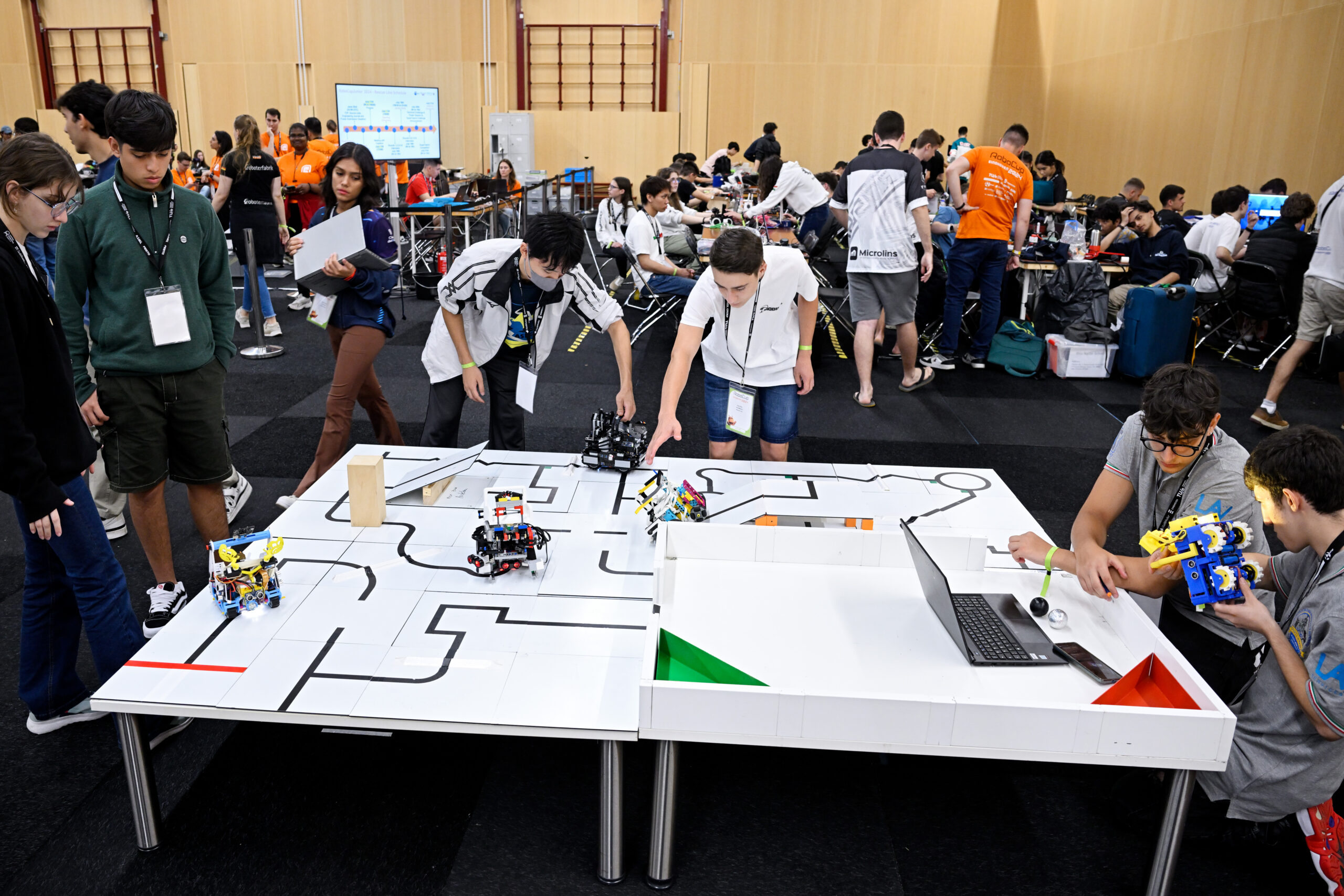 Action from RoboCupJunior Rescue at RoboCup 2024. Photo: RoboCup/Bart van Overbeeke.
Action from RoboCupJunior Rescue at RoboCup 2024. Photo: RoboCup/Bart van Overbeeke.
The annual RoboCup event, where teams gather from across the globe to take part in competitions across a number of leagues, will this year take place in Brazil, from 15-21 July. An important part of the week is RoboCupJunior, which is designed to introduce RoboCup to school children, and sees hundreds of kids taking part in a variety of challenges across different leagues. This year, the lead organizer for RoboCupJunior is Ana Patrícia Magalhães. We caught up with her to find out how the preparations are going, what to expect at this year’s competition, and how RoboCup inspires communities.
Could you tell us about RoboCupJunior and the plans you have for the competition this year?
RoboCup will take place from 15-21 July, in Salvador, Brazil. We expect to receive people from more than 40 countries, across the Junior and Major Leagues. We are preparing everything to accommodate all the students taking part in RoboCupJunior, who will participate in the Junior Leagues of Soccer, Rescue and OnStage. They are children and teenagers, so we have organized shuttles to take them from the hotels to the convention center. We’ve also prepared a handbook with recommendations about security, places they can visit, places to eat. The idea is to provide all the necessary support for them, because they are so young. We’re also organizing a welcome party for the Juniors so that they can experience a little bit of our culture. It will hopefully be a good experience for them.
The Juniors will be located on the first level of the mezzanine at the convention center. They will be separate from the Major Leagues, who will be on the ground floor. Of course, they’ll be able to visit the Major Leagues, and talk to the students and other competitors there, but it will be nice for them to have their own space. There will also be some parents and teachers with them, so we decided to use this special, dedicated space.
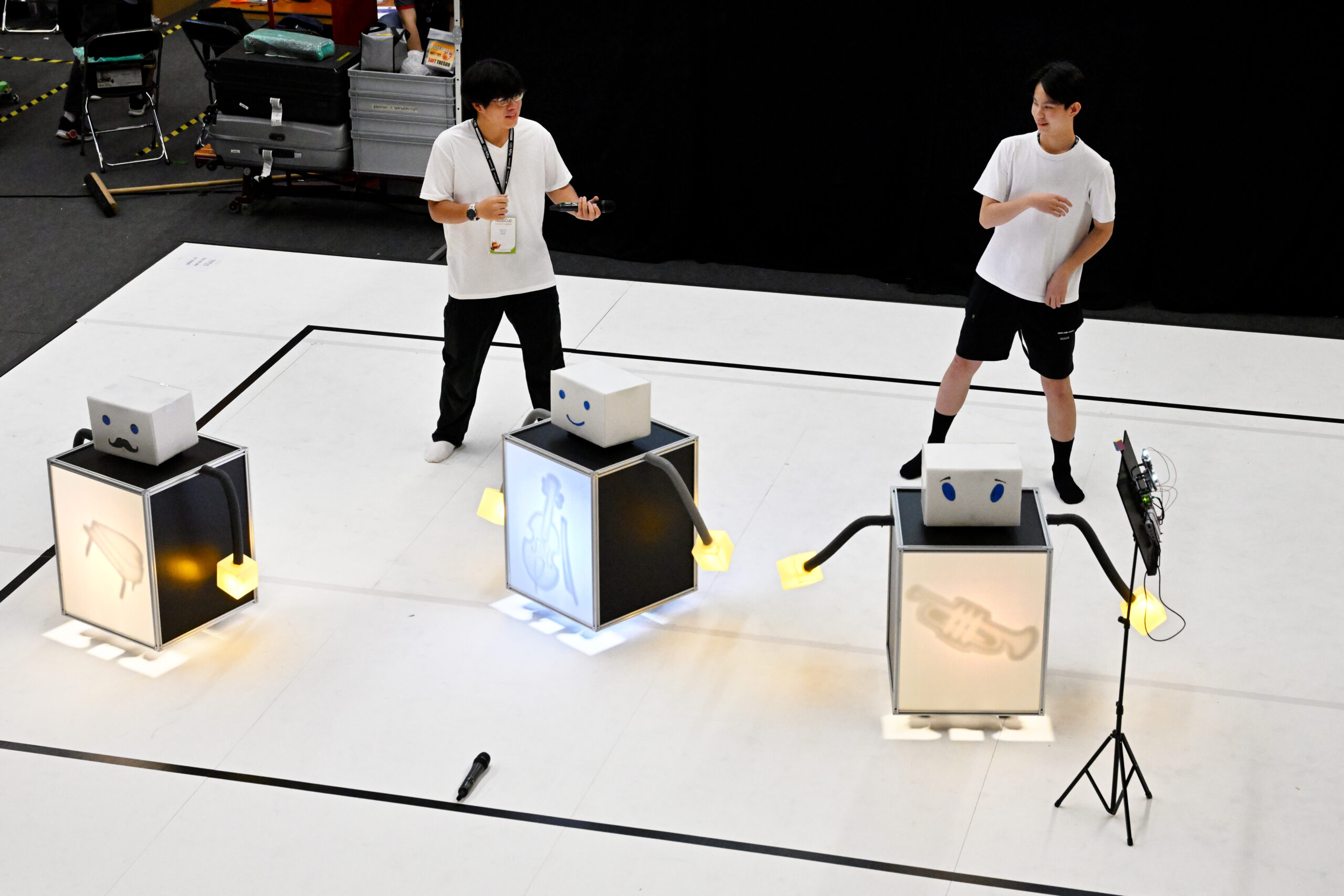 RoboCupJunior On Stage at RoboCup 2024. Photo: RoboCup/Bart van Overbeeke.
RoboCupJunior On Stage at RoboCup 2024. Photo: RoboCup/Bart van Overbeeke.
Do you have any idea of roughly how many teams will be taking part?
Yes, so we’ll have about 48 teams in the Soccer Leagues, 86 teams in the Rescue Leagues, and 27 in OnStage. That’s a lot of teams. Each team has about three or four students, and many of the parents, teachers and professors travel with them too. In total, we expect about 600 people to be associated with RoboCupJunior.
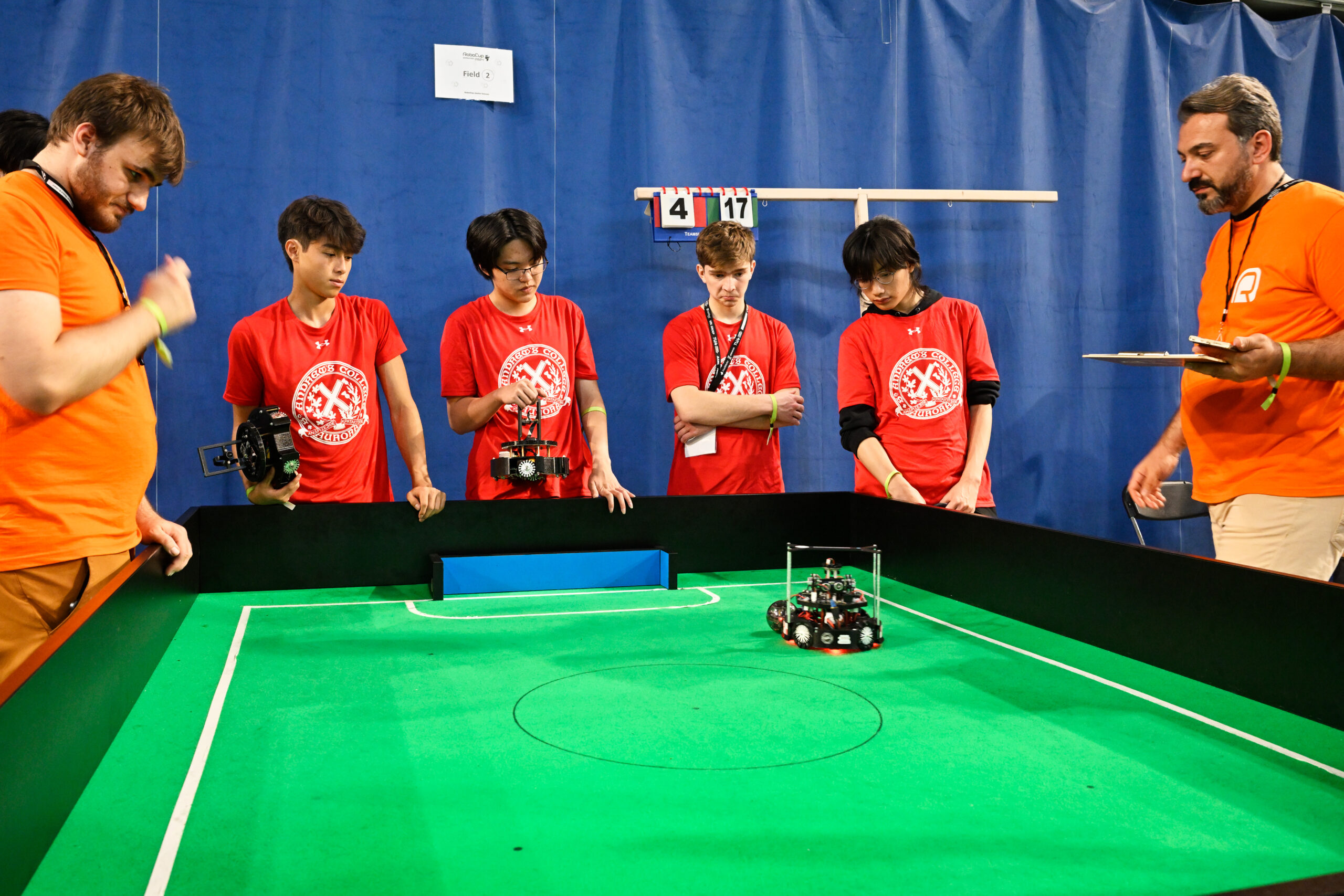 RoboCupJunior Soccer at RoboCup 2024. Photo: RoboCup/Bart van Overbeeke.
RoboCupJunior Soccer at RoboCup 2024. Photo: RoboCup/Bart van Overbeeke.
Have you got more RoboCupJunior participants from Brazil this year due to the location?
Yes, we have many teams from Brazil competing. I don’t know the exact number, but there are definitely more Brazilian teams this year, because it’s a lot cheaper and easier for them to travel here. When we have competitions in other countries, it’s expensive for them. For example, I have a team here in Salvador that qualified for the super regional event in the US and our team couldn’t go. They had qualified, but they couldn’t go because they didn’t have money to pay for the ticket. Now, it will be possible for all the Brazilian teams qualified to participate because it’s cheaper for them to come here. So it’s a big opportunity for development and to live the RoboCup experience. It’s very important for children and teenagers to share their research, meet people from other countries, and see what they are doing, and what research path they are following. They are very grateful for the opportunity to have their work tested against others. In a competition, it is possible to compare your research with others. So it’s different from conferences where you present a paper and show your work, but it’s not possible to compare and evaluate the results with other similar work. In a competition you have this opportunity. It’s a good way to get insights and improve your research.
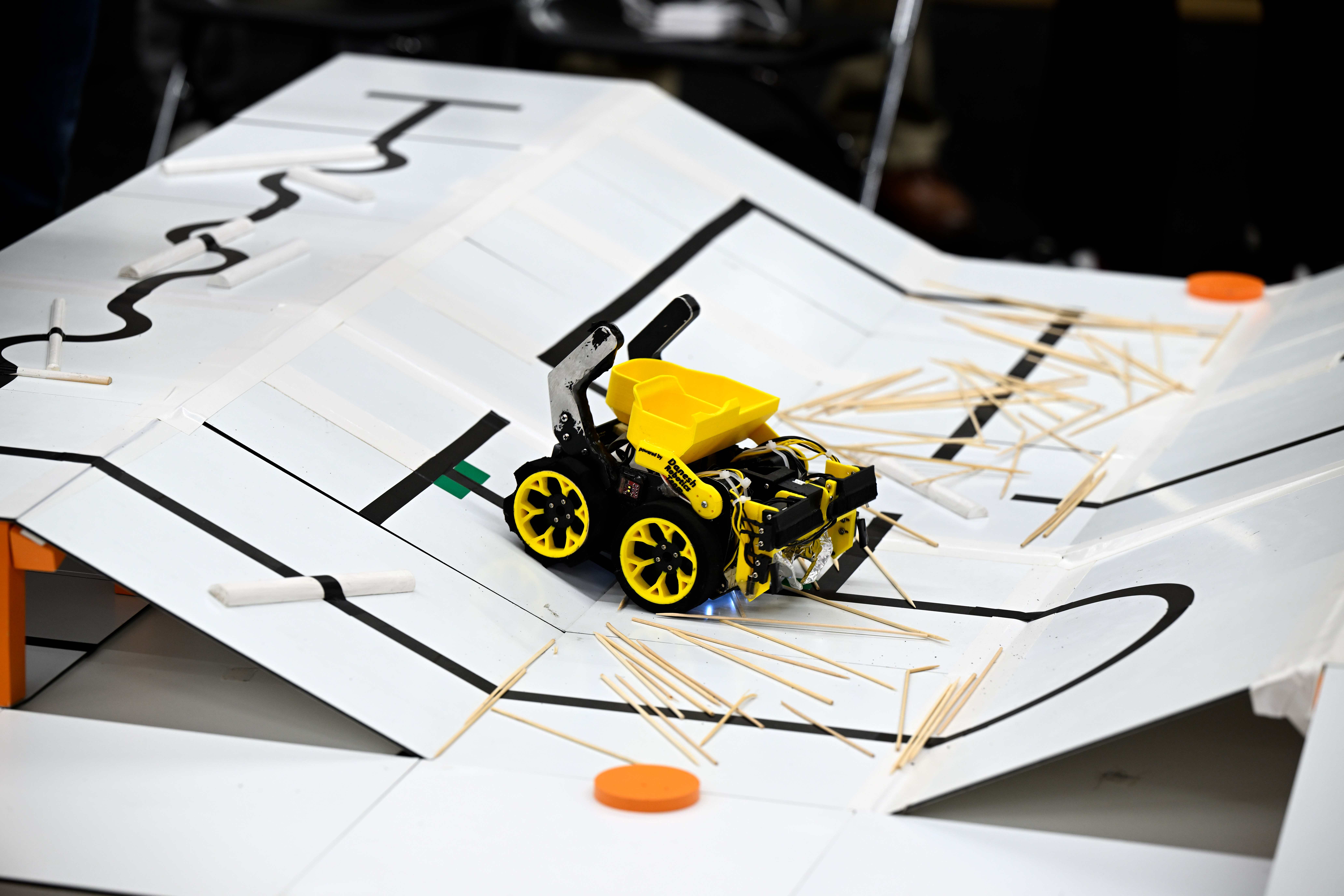 RoboCupJunior Rescue at RoboCup 2024. Photo: RoboCup/Bart van Overbeeke.
RoboCupJunior Rescue at RoboCup 2024. Photo: RoboCup/Bart van Overbeeke.
Your role at this RoboCup will be organizing RoboCupJunior. Are you also involved in the Major Leagues?
Yes, so my main role is organizing RoboCupJunior and I am also one of the chairs of the RoboCup Symposium. Besides, some teams from my laboratory are competing in the Major leagues. My team participates in the @Home league, but I haven’t had much time to help them recently, with all the preparations for RoboCup2025. Our laboratory also has teams from the 3d Simulation Soccer League, and the Flying Robots Demo. This will be the first time we’ll see a flying robot demo league at a RoboCup.
We’ll also have two junior teams from the Rescue Simulation League. They are very excited about taking part.
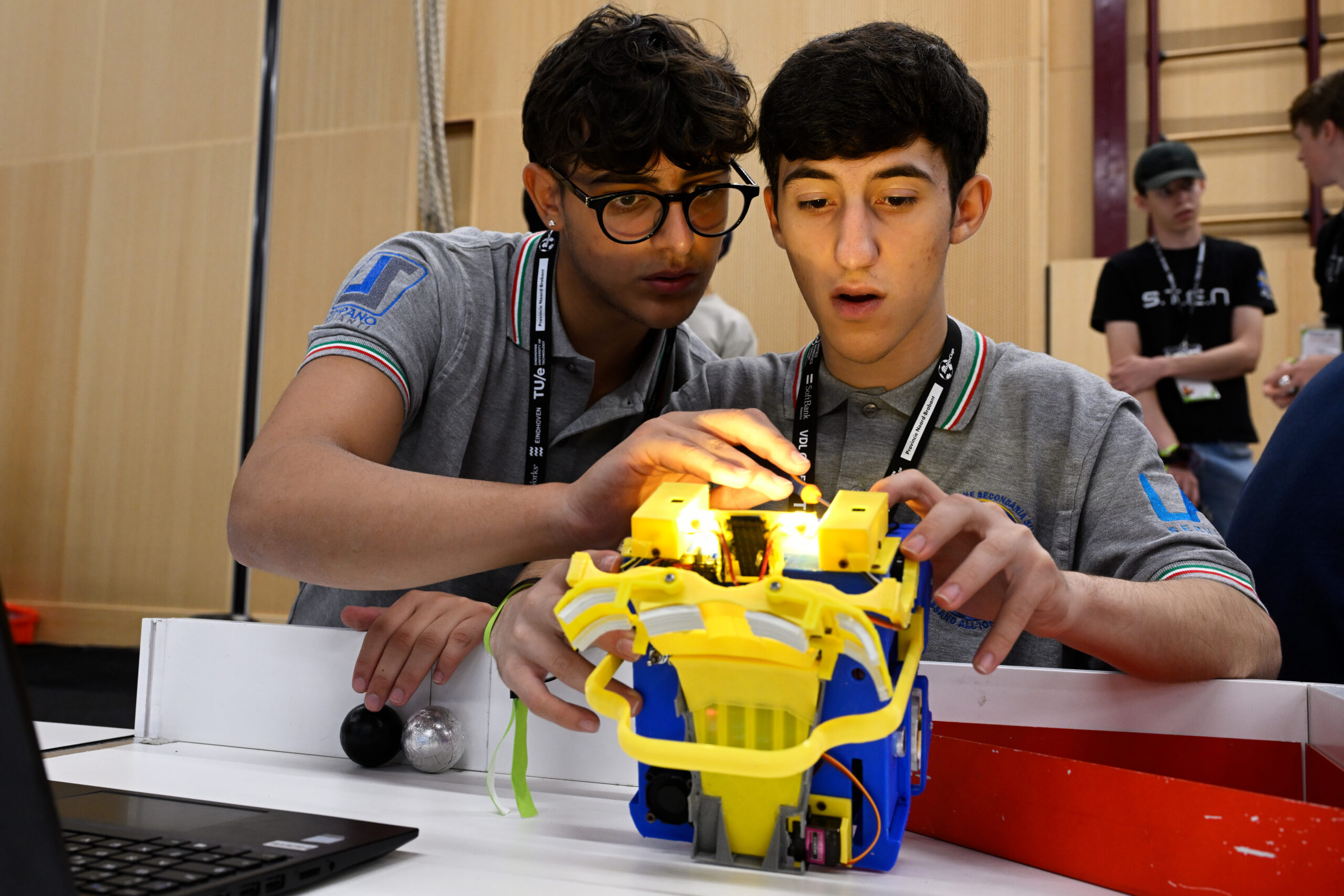 RoboCupJunior Rescue at RoboCup 2024. Photo: RoboCup/Bart van Overbeeke.
RoboCupJunior Rescue at RoboCup 2024. Photo: RoboCup/Bart van Overbeeke.
RoboCup was last held in Brazil in 2014, and I understand that there were quite a lot of new people that were inspired to join a team after that. Do you think the 2025 RoboCup will have the same effect and will inspire more people in Brazil to take part?
Yes, I hope so. The last one inspired many, many students. We could perceive the difference before and after RoboCup at that time, related to projects in schools. In 2014, RoboCup was held in João Pessoa, a city in the north east that is not as developed or populated as many other states in Brazil. It really improved the research in that place and the interest in robotics especially. After the 2014 RoboCup, we’ve had many projects submitted to the Brazilian RoboCup competition from that state every year. We believe that it was because of RoboCup being held there.
We hope that RoboCup2025 next month will have the same effect. We think it might have an even bigger impact, because there is more social media now and the news can spread a lot further. We are expecting many visitors. We will have a form where schools that want to visit can enroll on a guided visit of RoboCup. This will go live on the website next week, but we are already receiving many messages from schools asking how they can participate with their group. They are interested in the events, so we have high expectations.
We have been working on organizing RoboCup2025 for over a year, and there is still much to do. We are excited to receive everybody here, both for the competition and to see the city. We have a beautiful city on the coast, and some beautiful places to visit, so I recommend that people come and stay for some days after the competition to get to know our city.
About Ana Patrícia
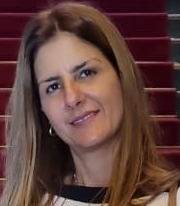
|
Ana Patrícia F. Magalhães Mascarenhas received her PhD in Computer Science from the Federal University of Bahia (2016) and Master in Mechatronics from the Federal University of Bahia (2007). She is currently an adjunct professor at the State University of Bahia (UNEB) at the Information Systems course. She is a researcher and vice coordinator of the Center for Research in Computer Architecture, Intelligent Systems and Robotics (ACSO). Her current research focuses on service robotics and software engineering, especially related to the use of Artificial Intelligence (AI) in the software development process and in Model-Driven Development (DDM). |
tags: RoboCup, RoboCup2025










